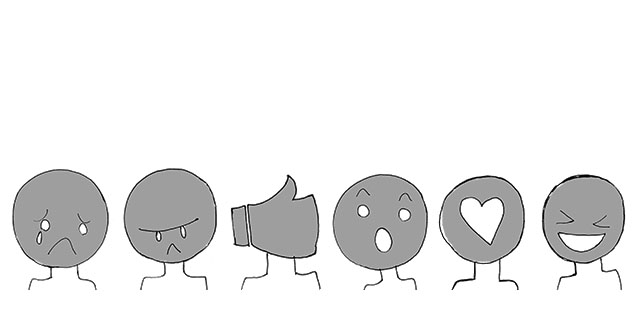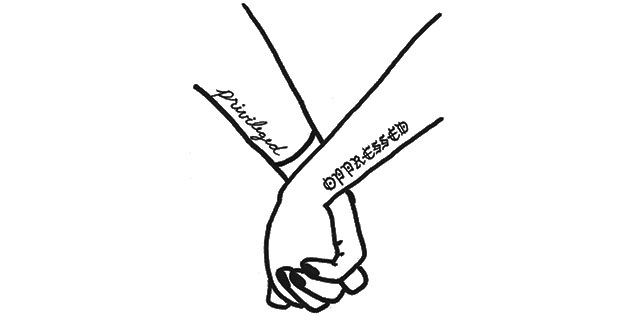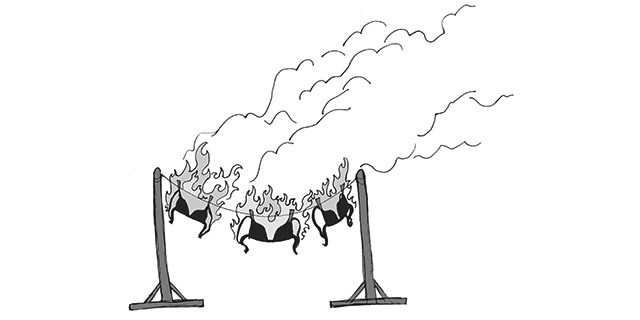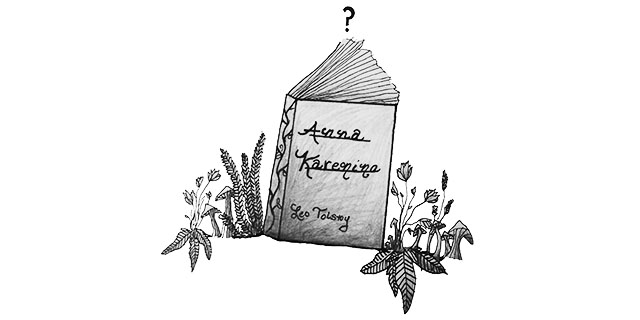 I take a lot of computer-generated life quizzes. A little weird, I know, but it fascinates me that random, unbiased sources think they can tell you where you fit in. So, a couple months ago, while perusing the Internet, I stumbled upon a Myers-Briggs personality-type quiz and decided to take it.
I take a lot of computer-generated life quizzes. A little weird, I know, but it fascinates me that random, unbiased sources think they can tell you where you fit in. So, a couple months ago, while perusing the Internet, I stumbled upon a Myers-Briggs personality-type quiz and decided to take it.
The quiz required you to respond ‘yes’ or ‘no’ to questions such as: “your desk is neat,” or “a thirst for adventure is close to your heart,” or “you tend to sympathize with others.”The quiz results showed that I was an INFJ, which means that I am assumed to have characteristics of Introversion, iNtuition, Feeling and Judgment. Hey look, Gandhi was one too! The quiz then proceeded to tell me what careers I would be best suited for based on my quiz results. I am, according to personalitypage.com, a “protector.” Another totally reputable website advised me to pursue a career in the healthcare industry (counselors, psychologists or doctors), or in the “expressive” field (writing), or a field relating to music, photography, design and art. Truity.com says I am best suited for a career in religion, counseling, teaching or the arts. So basically, almost anything.
Well, thank you, arbitrary websites, for dictating what my life path should be. What if I wanted to be, say, a professional sports player (no, not really, and I apologize if your dreams are crushed if you do not get to see me play pro women’s water polo) and now I am being told that I am not best suited for that career! Imagine what that does to one’s self esteem.
Look, the medical field is interesting and all, but I most certainly will pass out at the sight of someone’s tissue or bones. I have no desire to undertake a career in that, so why am I supposedly, “best fit” for that profession?
I am fifteen. I do not know what I want to do yet. I love the arts and writing, so maybe I’ll pursue a career in that field. But does that mean that other career paths are closed to me because 16personalities.com told me that I should not be anything else?
Last month, I took a quiz on Buzzfeed to determine whether I was an introvert, extrovert or ambivert. For years, I was always stuck between being calling myself an introvert or extrovert: I love hanging out with friends, but I also need my time to relax and recharge by myself. So imagine my excitement when I found out I was an ambivert–a little of both! But as I scrolled through the comments, my heart sank. According to the Myers-Briggs Type Indicator, the original introvert-extrovert test created by Katherine Cook Briggs and Isabel Briggs Myers during World War II with the lone purpose to help women enter the workforce, you either have to be an introvert or an extrovert, and it is not possible to be both. So now I am back to square one: stuck in the middle of these two designated boxes that psychologists deem the standard.
Introverts are stereotypically supposed to be the thinkers, like writers or inventors, and the quiet, imaginative ones, while extroverts are conceptualized to be the more outgoing ones, like salespeople or entertainers. But there shouldn’t be a ‘type.’ Each person in this world is unique and probably shares characteristics of both. We should not be persuaded to think that our careers and our successes have to be determined by the confinements of our labeled “personality type.” Briggs and Myers might have thought that their test would help women, and maybe it did, back then, but now, it is nothing more than another way to stereotype people and restrict their scope and ability.
If today happens to be a day when I identify more as an introvert, are you telling me I would not be as successful salesperson as an extroverted salesperson would be? Yeah, so maybe some introverts are less social than others. But that depends on the person. We need to stop generalizing. Society needs to stop dividing people into two boxes and telling them to pick out of a pool of certain careers because of the way they were born. There are a lot of areas in between.
Furthermore, a 2013 study on 300 salespeople, conducted by Adam Grant of the University of Pennsylvania’s Wharton School, concluded that the statistical difference between extroverts’ income versus introverts’ income was basically zero. Grant also found that the salespeople who did not necessarily fit the polarized categories of extroversion and introversion, in other words, people in the middle, actually made more revenue than extroverts or introverts. In fact, a lot of demanding fields require you to have characteristics of both an introvert and those of an extrovert. Take teachers, for example. A teacher has to be imaginative and creative in their teaching process but also must be able to successfully socially interact with their students.
You should not have to pick your career because of what personality type you are, or if you are an introvert or extrovert. Yes, I realize that it is just a petty, simple-minded quiz that I took on the Internet, but the virtual world is a representative and extremely important facet of our society. You should pick your career based on what you love to do, simple as that. I am sure that there are extroverted writers, and I’m sure that there are introverted popstars. Yes, maybe they are not that common, and it is probably not a coincidence that writers are often introverts, but that’s something that our culture needs to stop stereotypically labeling. I acknowledge that a person’s personality can help guide her towards a certain field, but that does not apply to every person. You can follow any career that you want.




